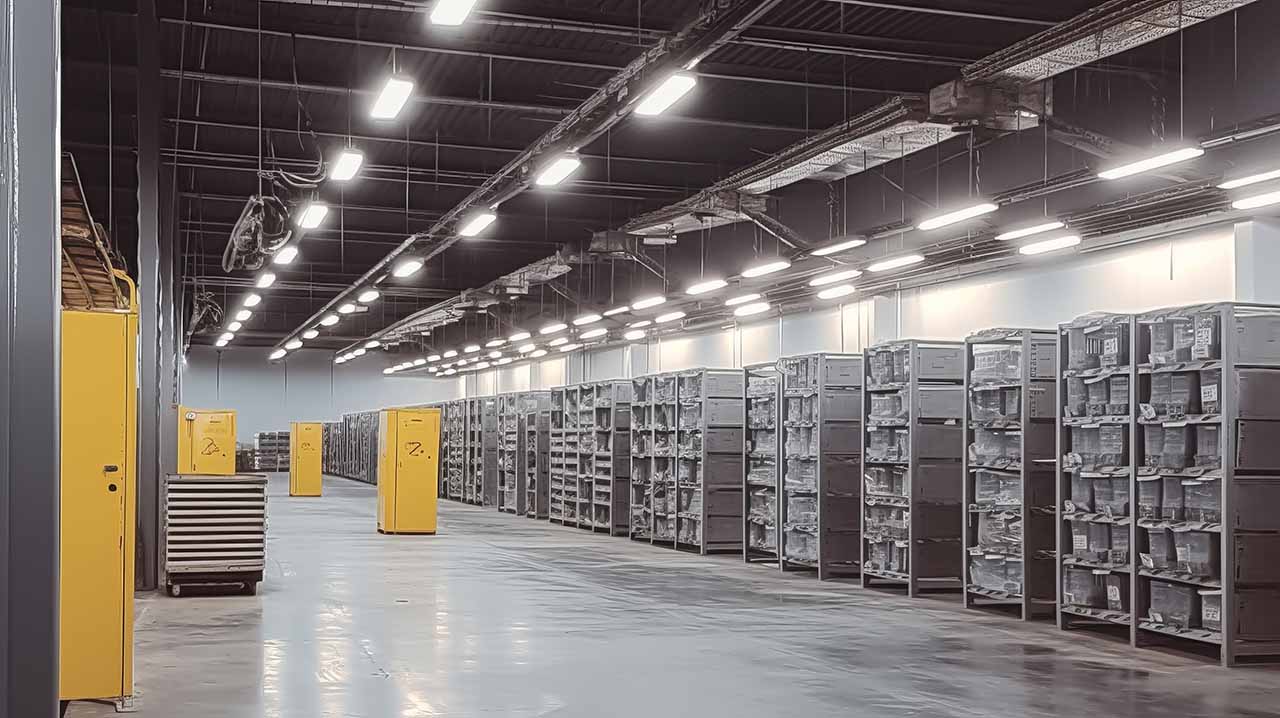Exploring Temperature Controlled Warehousing and Cold Storage Facilities in Illinois
Dec 29, 2023
BlogTemperature-controlled warehousing, including cold storage, refrigerated warehousing, climate-controlled warehousing, and frozen storage facilities, plays a crucial role in the storage and distribution of perishable goods. These specialized facilities provide appropriate temperature and humidity conditions to ensure the integrity and safety of products that require specific temperature control. In this article, we will explore the various types of temperature-controlled warehousing in Illinois, highlighting their significance and benefits for businesses in the state.
- Cold Storage Warehousing:
Cold storage warehousing facilities are designed to maintain lower temperatures, typically ranging from -20°C to 8°C (-4°F to 46°F). These facilities are vital for storing perishable products, such as fruits, vegetables, dairy products, and pharmaceuticals. In Illinois, there are several cold storage warehouses strategically located throughout the state, providing efficient storage solutions for businesses in need of temperature-controlled environments.
- Refrigerated Warehousing:
Refrigerated warehousing facilities maintain temperatures typically ranging from 0°C to 8°C (32°F to 46°F). These facilities are commonly used to store goods that require cool temperatures but not freezing. Examples of products stored in refrigerated warehouses include fresh produce, beverages, vaccines, and certain medications. The presence of refrigerated warehousing in Illinois ensures the availability of proper storage for businesses operating in the food and pharmaceutical industries.
- Climate-Controlled Warehousing:
Climate-controlled warehousing goes beyond temperature control and includes maintaining specific humidity levels. These facilities are designed to store sensitive products that require both precise temperature and humidity conditions, such as electronics, artwork, and documents. While climate-controlled warehousing may not be as prevalent as cold storage or refrigerated warehousing in Illinois, several specialized facilities exist to cater to the needs of businesses dealing with temperature-sensitive assets.
- Frozen Storage Warehousing:
Frozen storage warehousing facilities maintain temperatures below freezing, typically ranging from -23°C to -18°C (-9°F to 0°F). These facilities are crucial for storing frozen food products, ice cream, frozen meat, and other perishables that must be kept at stable sub-zero temperatures. In Illinois, frozen storage warehouses are strategically positioned to support the state’s food production and distribution sector, ensuring the availability of frozen goods throughout the year.
Benefits of Temperature Controlled Warehousing:
Investing in temperature-controlled warehousing in Illinois offers several benefits to businesses:
- a) Extended Shelf Life: Temperature-controlled warehousing ensures that perishable goods maintain their quality, taste, and nutritional value for longer periods, allowing businesses to expand their market reach.
- b) Reducing Spoilage and Waste: By maintaining the optimal storage conditions, temperature-controlled warehousing helps reduce spoilage, product damage, and waste, resulting in cost savings for businesses.
- c) Improved Regulatory Compliance: Temperature-controlled warehousing facilities adhere to strict regulatory standards, ensuring compliance with industry-specific guidelines and quality control measures.
- d) Efficient Supply Chain: Proper temperature control at every stage of the storage and distribution process helps maintain product integrity, reducing the risk of recalls, customer complaints, and potential legal issues.
- e) Flexibility and Scalability: Temperature-controlled warehousing facilities offer flexible storage solutions, allowing businesses to adapt to changing market demands and gradually increase or decrease their storage capacity as needed.
Conclusion:
Temperature-controlled warehousing, including cold storage, refrigerated warehousing, climate-controlled warehousing, and frozen storage facilities, are crucial components of the supply chain in Illinois. These specialized facilities enable businesses to store and distribute perishable goods while maintaining the highest standards of quality and integrity. By investing in temperature-controlled warehousing, businesses in Illinois can ensure the preservation of their products, reduce waste, comply with regulatory requirements, and enhance their overall efficiency and competitiveness.


 Dave McGowan has been a member of the WEL Family since May 1989. He is a husband and father of two children. Dave is also a U.S. Army veteran and served in Vietnam in 1971-1972, and he attended driving school soon after he was released from the military in 1974.
Dave McGowan has been a member of the WEL Family since May 1989. He is a husband and father of two children. Dave is also a U.S. Army veteran and served in Vietnam in 1971-1972, and he attended driving school soon after he was released from the military in 1974. During his career with WEL, Phil has worked as a driver, dispatcher, terminal manager and customer service manager. He says he always was a driver first, though non-driving jobs taught him financial management that helps him as an owner-operator.
During his career with WEL, Phil has worked as a driver, dispatcher, terminal manager and customer service manager. He says he always was a driver first, though non-driving jobs taught him financial management that helps him as an owner-operator.